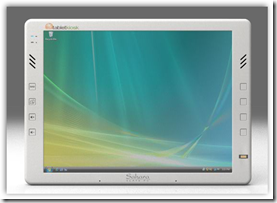Hat's off to the Wall Street Journal for mentioning this. Great topic and I'm going to rant and bring a few more details of this entire issue to light here. As any readers of this blog know I am a tech person that work with medical professionals and others to bring this to light and my gosh it is not easy. As this article indicates here, finally some results are going in on the computer. If this article doesn't make a lot of sense, take a look at my profile and that will explain a bit as to why I took this on today.
Doctors that have faxes turn them off after 5:00 p.m., why so they don't have to pay for a "junk" fax, but we all know if you still need faxing, an Internet faxing service is the best. One hospital I recently spoke to expressed this frustration on the time of day she had to fax as nothing could wait until when things slow down after 5:00 or so, as many turn off the faxes, amazing but true. You would also be surprised to see some real typewriters still in use at some offices, but yes they are there. This hospital has to fax as many of the physicians on staff don't have email addresses.
Now, in my travels, I run into Pharma sales representatives, all equipped with some pretty darn nice tablet computers. Why do the reps carry these, to capture a signature for samples for the most part. It is interesting though as I comment and enter into conversations with them perhaps trying to make them aware of what else they can do with a tablet, take notes, dictate with voice recognition, but they too are a hopeless cause. They use a tablet for one thing and one thing only, to get that signature and think they just have a notebook. Sad that that Pharma spends all this money to only have the representatives use the advanced features for one item only. This conversation has happened many times over the last few years, they only do what is absolutely necessary and shut the door to making their life easier with other features the could use.
Next bunch, the FDA, they too were writing studies up long hand up until not too long ago and I can reflect back on a somewhat sarcastic comment I made in February about helping the FDA with some inexpensive "Classmate" computers from Intel. It is absolutely amazing what folks "don't" and "won't" work with. So, now we have 2 entities still writing up studies and results in long hand, doctors wrote them up that way, FDA analyzes and wrote up a long hand report, so what's up with this! Sounds like we have a 2 part issue here.
This year I attended the HIMMS convention, lots of folks pushing tablets, but was there anyone making use of a tablet to work the convention beside me, no, felt like the "Lone Ranger" out there, but you know what, I did homework ahead of time, had a file on the tablet of every vendor I wanted to speak with and was much more productive and covered a lot more ground. Sometimes folks don't feel this is cool, but I was there to work and being cool was secondary on the list!! One more note, the vendors I spoke with liked it!! Lots of folks promoting tablets, but were they using the technology themselves to be more efficient, this sounds like one of those one sided affairs here. In today's world you need to see products in action and working with real life situations.
I have had hospital CEOs give me strange an discomforting looks when attending a meeting and I bring out my tablet to take notes, of course they all have yellow paper pads. You can almost hear the words silently echoing in the room "Here's Lucifer with that tablet thing again". Oh the looks of disgust are priceless from every avenue.
Bottom line, anyone who takes notes can use a tablet, CEO, blogger, journalist, CIO, administrative assistant, research and  development folks, and last but not least how about some folks compiling some clinical results!! If you take a look at my profile on the site here you can see where I began as an avid Windows Mobile user over 10 years ago and I ran circles around my peers in sales, why, because I had my information with me and entered more while in meetings and discussions.
development folks, and last but not least how about some folks compiling some clinical results!! If you take a look at my profile on the site here you can see where I began as an avid Windows Mobile user over 10 years ago and I ran circles around my peers in sales, why, because I had my information with me and entered more while in meetings and discussions.
My big fear initially, will my clients and others like this, well after one or two funny looks and when they saw me in action with pulling a device out of my purse to recall and recap any information I needed at the time, they loved it. I am talking about large accounts too, like Pfizer I used to call on. We used to laugh as when I came in to the facility, what was I going to do for the day, sales or give them some new computer skills! I had a great relationship with their facility in Irvine due to that fact and you know what, they kept giving me more business too, a nice success story there.
I have sold tablet computers to doctors that have disappointed me too, as they lack the commitment on making it work for them. I am indeed saddened to see a tablet, sitting on the desk collecting dust, but it happens. If you have read this far and digested some of what I have covered above, just think what this does for healthcare and medical records, same principles, same dedication, just a subject that is much more important and critical, our health!!
Mobility and efficiency is an attitude, a good one at that. 
Next week I am a guest speaker for a Senior Microsoft users group as their request in southern California and they put together the subjects they want to know more about...don't hold your breath on this one, but the number one topic that they all want to learn more about is "how to use dictation". Many have purchased new computers and have heard now that they can do this now, so with Vista on the new computers they purchased I'm going to try and make this happen for as many as possible. Ok, now if the seniors want part of this action, what's up with healthcare?
I have written several posts on personal health records and have expressed the concerns to many, what are you going to do when a patient arrives with a record and wants to share some information...answer'..."dunno". It's not a large item yet but when hospitals and doctors start seeing Kaiser Permanente patients who have all their records in the HealthVault and want to share, duh? The folks who have no computers are really up a creek. Those who have a computer, but no business email  address, well just about as bad. And what about Kaiser and the patient, they are going to just love getting a paper file back to enter the data or will it be on the patient to do this, either way, you have one big loser here.
address, well just about as bad. And what about Kaiser and the patient, they are going to just love getting a paper file back to enter the data or will it be on the patient to do this, either way, you have one big loser here.
Granted this has not opened up yet for all patients in their system, but it's coming soon.
For a little additional information, watch this video from Senator Coburn, one of 2 physicians in Congress today, he covers things very well, including the fact that Congress is still living in the 50s. I'm always open for technology questions too so if I have confused or left ends not tied here, please get in touch and thanks for reading this ranting post today. Hopefully someone will have listened along the way and I have covered some areas as to why much of healthcare is still low tech.
In conclusion, technology and the right tools can sure make clinical trial reporting and analyzing a lot easier. BD
We’ve gotten used to the idea that, despite all the fancy equipment, medicine is a low-tech business. Most doctors still use paper records, and it’s a rare patient who has created an electronic personal health record (though Google and Microsoft are working to change that).
Still, we were a bit surprised to learn today that even clinical trials for experimental drugs — cutting-edge science! — are still largely pen-and-paper affairs. Doctors and nurses fill out forms and send them off to drug companies or contract research organizations, which then enter the data into a computer.
Health Blog : Clinical Trials Technology Creeps Into the 21st Century



0 comments :
Post a Comment